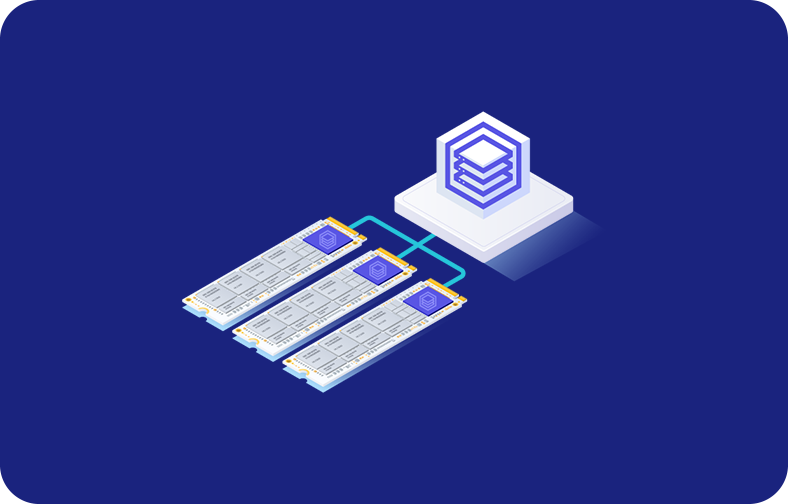Amazon Cloud VPS
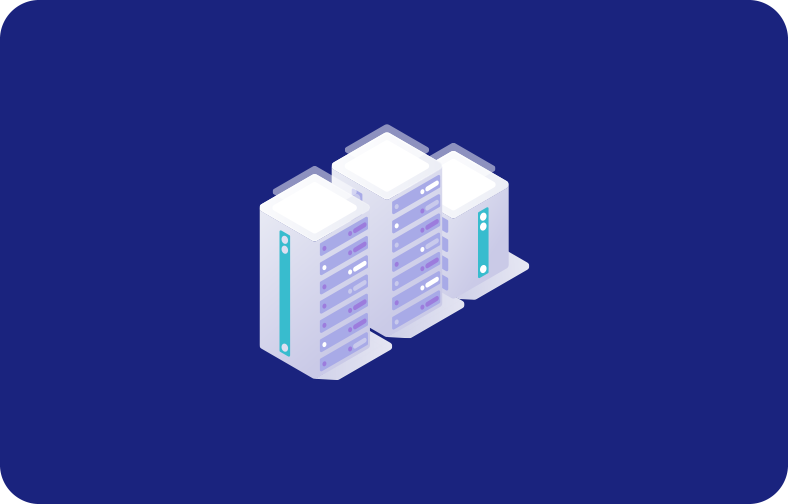
The transformation of web hosting has embraced more adaptable and scalable solutions, prominently marked by the rise of Virtual Private Servers (VPS) as a favored option for businesses and developers. VPS hosting efficiently fills the space between shared hosting's constrained capabilities and the extensive, albeit expensive, infrastructure of dedicated servers. Within this competitive landscape, AWS (Amazon Web Services) emerges as a leader, particularly with its Amazon Cloud VPS offering, which stands out for its comprehensive infrastructure, dependability, and scalability, thereby meeting a broad spectrum of hosting requirements.
Amazon Cloud VPS, a vital element of AWS, stands out for its global data center network, promising minimal delay and maximum operational time for applications. AWS's pay-as-you-go pricing scheme offers unparalleled adaptability, permitting the adjustment of resources in response to actual usage—ideal for applications with changing traffic volumes. This pricing mechanism not only contributes to cost reduction but also guarantees that organizations pay exclusively for the resources they utilize, positioning AWS as an efficient option for various application needs.
Despite AWS's prominence, alternatives like VPSServer have carved out their niche. They offer competitive pricing, superior performance, and a user-centric experience that resonates with a wide audience. VPSServer's emergence highlights the diversity of options available to users, underscoring the importance of choosing a service that aligns with specific hosting needs and budget considerations.
This discussion aims to delve deep into the features and offerings of Amazon Cloud VPS, AWS pricing, and VPSServer, presenting a thorough comparison of their pricing strategies, array of services, performance metrics, and overall value proposition.
How do AWS Lightsail and EC2 Differ from Each Other?

Navigating the offerings within Amazon Web Services (AWS) presents a choice between the simplicity of AWS Lightsail and the scalability of AWS EC2, akin to selecting between a fully serviced apartment and a custom-built house. AWS Lightsail appeals to those looking for an easy-to-manage, cost-effective cloud solution, offering a straightforward pricing model that includes service, virtual servers, storage, and a user-friendly interface ideal for small to medium projects. It's designed to simplify the cloud experience, allowing users to launch applications efficiently and scale them with the support of the AWS low tier. It makes it accessible for startups and developers aiming to minimize upfront costs and complexity.
In contrast, AWS EC2 provides a robust, customizable cloud service tailored for detailed control over computing resources, catering to businesses with variable demands or rapid growth. It supports a wide range of AWS offers, including Lambda for serverless computing, EBS for block storage, and Amazon CloudFront for content delivery, allowing users to tailor their environment precisely. With its pay-as-you-go pricing, savings plans, and spot instances, EC2 offers a scalable, cost-effective solution for managing complex applications backed by AWS's extensive cloud infrastructure and security. This ecosystem enables a comprehensive approach to cloud computing, optimizing for performance, scalability, and cost efficiency, suitable for projects at any scale.
AWS Lightsail
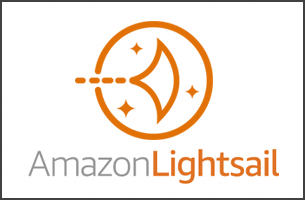
Envision AWS Lightsail as your streamlined, all-encompassing cloud residence. Ideal for those who value simplicity and a turnkey solution, AWS Lightsail is a service that encapsulates all the technical complexities into a straightforward, manageable package. This makes it an excellent starting point for solo developers, small business owners, or students embarking on their cloud journey with Amazon Web Services (AWS).
Key features of AWS Lightsail
-
Preconfigured Ease: Lightsail stands out by offering pre-packaged plans that combine a virtual server, storage, and networking into one affordable bundle. This package is like an apartment where everything is ready for you—you need to move in. With a selection of computing power, storage space, and data transfer capacity tailored to your needs, Lightsail simplifies the transition into cloud usage.
-
User-Friendly Interface: The platform takes pride in its straightforward interface, which sidesteps the necessity for intricate guides. From managing servers and setting up your cloud directory to keeping data backups current, Lightsail simplifies these operations, conserving users' time and effort.
-
Predictable Pricing Model: One of Lightsail's most significant advantages is its predictable pricing, which is similar to a fixed monthly rent. This budget-friendly approach includes a free tier for new users, making it cost-effective for those keen to manage their cloud costs without surprises. For more detailed estimates, the AWS pricing calculator can help users forecast their expenses based on AWS usage.
-
Scalability and Access to AWS Ecosystem: Lightsail provides the perfect ground for growth, facilitating users to scale resources as needed. When your project outgrows Lightsail, you can seamlessly integrate with different services within the AWS ecosystem, such as Lambda for serverless computing, EBS for block storage, and Amazon CloudFront for content delivery across CloudFront locations. This integration not only helps optimize your application's efficiency and security but also ensures that you can continue to save money through services like AWS savings plans and spot instances, which offer cost savings for flexible usage.
-
Broadening Your Capabilities: As you expand, AWS Lightsail facilitates access to a broader range of AWS services, from AWS machine learning and artificial intelligence capabilities to advanced database options like SQL Server. This enables businesses and developers to enhance their applications with high-performance analytics, optimize data transfer, and leverage artificial intelligence and machine learning to create more intelligent solutions.
-
Regional Availability and Performance: AWS's global infrastructure allows users to deploy their Lightsail instances in multiple regions, including the US East, to reduce latency, improve site load times, and provide a better customer experience. The availability of various regions allows users to strategically place their resources closer to their audience, enhancing efficiency while effectively managing costs.
AWS Lightsail is an accessible, affordable gateway to the AWS cloud. It presents a straightforward, reliable, and expandable foundation for initiating and advancing cloud-centric ventures. Whether you aim to host a website, create a business application, or delve into cloud innovations, Lightsail equips you with the crucial functionalities, security measures, and growth capacity needed for your projects. Simultaneously, it facilitates cost control and the effective utilization of AWS resources.
AWS EC2
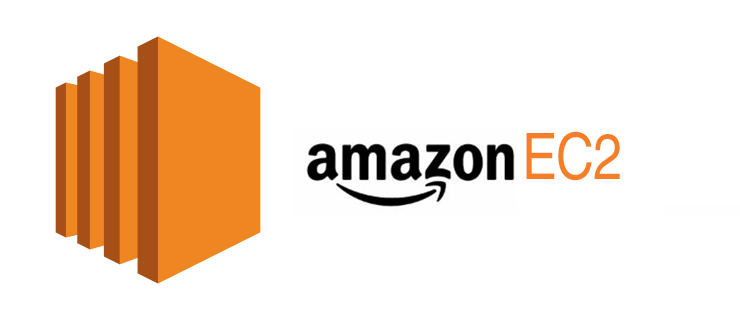
AWS EC2 represents the pinnacle of flexibility and control within the Amazon Cloud, catering to those who demand precision, scalability, and the freedom to mold their cloud infrastructure precisely as needed. Ideal for businesses with intricate AWS compute needs, high-traffic online platforms, or data-heavy applications, AWS EC2 provides a scalable environment that allows for extensive customization, mirroring the experience of constructing your very own cloud-based mansion.
Key features of AWS EC2
-
Tailored Configuration: AWS EC2 stands out with its broad assortment of instance types, enabling users to fine-tune their cloud resources to match specific requirements. Whether it’s enhancing CPU, memory, or GPU capabilities, EC2 allows for comprehensive customization to ensure your cloud services operate at peak efficiency.
-
Scalable Flexibility: EC2's scalability feature ensures that your cloud infrastructure can adapt its size to match the evolving needs of your project. This level of flexibility, akin to customizing your home's layout to suit changing requirements, allows for the precise scaling of resources as and when they're needed. With EC2, resource adjustments—whether scaling up to accommodate growth or scaling down to reduce overhead—are smoothly managed, keeping pace with your project's dynamic demands.
-
Advanced Security Capabilities: EC2 comes with comprehensive security features aimed at safeguarding your cloud infrastructure. The implementation of tools like Amazon VPC and Elastic Load Balancing establishes a formidable security framework that defends your cloud setup from potential risks, guaranteeing uninterrupted functionality. Such security measures are essential for preserving the reliability and efficiency of your applications, providing a sense of security and a stable groundwork for your cloud endeavors.
-
Advanced Security Capabilities: EC2 comes outfitted with high-end security protocols aimed at defending your cloud setup. Features including Amazon VPC and Elastic Load Balancing build a solid security framework, protecting your cloud space from possible hazards and facilitating uninterrupted functionality. This degree of security is vital for preserving the reliability and efficiency of your applications, providing a sense of security and a steadfast base for operations in the cloud.
-
Integration with AWS Services: EC2 seamlessly integrates with various AWS services, enhancing its capabilities. This suite encompasses Amazon EBS for block storage solutions, AWS Lambda for executing serverless computing tasks, and Amazon CloudFront for streamlined content delivery. Furthermore, the integration of machine learning and artificial intelligence services offers the opportunity to infuse your applications with sophisticated analytics and intelligent capabilities, highlighting the extensive range of options available within the AWS ecosystem.
-
Optimized Data Transfer and Storage: AWS EC2 optimizes data transfer and storage solutions for efficiency and cost-effectiveness. Utilizing Amazon S3 for object storage or Amazon RDS for SQL databases can enhance your application's data management, ensuring fast, secure access to your data whenever needed.
AWS EC2 presents a highly customizable, scalable, and secure platform within the AWS cloud, offering businesses the tools and flexibility needed to build a tailored cloud infrastructure. From server management to integrating advanced AWS machine learning capabilities, EC2 delivers a comprehensive solution for those seeking a custom-built cloud environment. Whether you’re managing high-traffic websites or complex applications or seeking to optimize your cloud usage, EC2 provides the resources and scalability to support your ambitions, ensuring cost-effective and efficient operation across the board.
Comparing Amazon Cloud VPS (Lightsail and EC2)
| Amazon Lightsail | Amazon EC2 | |
|---|---|---|
| Multiple pricing models and discount options that match your use case | ✓ | |
| Low, predictable, and bundled monthly pricing | ✓ | |
| Easily connects to other AWS services | ✓ | ✓ |
| Offers an all-in-one experience, including load balancers and databases | ✓ | |
| Allows you full control and flexibility so that you can configure exactly what you need | ✓ | |
| Makes server management easier by automatically configuring key resources like networking and security | ✓ | |
| Instance types tailored for specific tasks such as enterprise apps, machine learning, high-performance computing, and graphics-heavy applications. | ✓ | |
| Offers you a simplified and efficient way to launch, deploy and manage your compute, networking, storage, and database resources on AWS | ✓ |
Choosing between Lightsail and EC2 hinges on identifying your specific requirements from a cloud service. For those seeking straightforwardness, cost-effective solutions, and a bundled package, Lightsail stands out as the equivalent of a comfortable, all-inclusive apartment. On the other hand, if your requirements are more intricate and necessitate scalability, personalization, and targeted efficiency features, EC2 offers an expansive, tailor-made house ready to fulfill your larger aspirations.
Regardless of your choice, each service provides a range of capabilities designed to accommodate various cloud computing needs. Opting for either Lightsail's streamlined approach or EC2's comprehensive flexibility ensures access to the resources necessary for your cloud-based projects without explicitly endorsing one over the other.
VPSServer vs Amazon Cloud VPS Pricing Comparison
| Feature | VPSServer.com | Amazon EC2 | Amazon Lightsail |
|---|---|---|---|
| Starting Price | 4/month | Variable, demand-based pricing | 3.50/month |
| Performance | High, with NVMe SSD storage | Customizable, high performance | Optimized for simpler projects |
| Ease of Use | Custom control panel | Complex, more flexibility | Simple, easy-to-use interface |
| Flexibility | Very High | High | Moderate, simpler scaling |
| Global Data Centers | Over 20 locations | Extensive | Global AWS infrastructure |
| Managed Option | Yes | No | No, but integrates with AWS |
Selecting the appropriate VPS hosting service transcends simple price evaluations. It requires a comprehensive assessment of the interplay among cost, efficiency, and the ability to scale. Factors such as CPU capability, memory, storage capacity, network bandwidth, and the level of technical support significantly impact the pricing of VPS hosting. Amazon Cloud VPS and VPSServer both provide structured pricing schemes designed to support a range of needs, from straightforward web-hosting environments to sophisticated applications with heavy traffic demands.
Amazon Cloud VPS employs a consumption-based pricing model, where users are billed strictly based on the resources they deploy and use. This flexible approach is especially beneficial for managing applications with unpredictable traffic patterns, as it permits agile resource allocation adjustments in tune with shifting needs.
On the other hand, VPSServer offers a more traditional monthly subscription model, with fixed plans that include a specified allocation of resources. While this approach may seem less flexible, it can offer better predictability for budgeting, especially for projects with stable resource requirements.
In the upcoming section, we will compare the pricing strategies offered by these providers in detail, focusing on entry-level options suitable for startups and minor projects, mid-tier plans ideal for expanding websites, and premium packages crafted for large-scale applications. This thorough examination aims to illuminate the advantages and limitations of each provider's pricing approach, assisting users in determining which service delivers the most outstanding value tailored to their unique requirements.
Detailed Pricing Comparison
When evaluating the cost-effectiveness of VPS hosting services, consider the sticker price and what you're getting for your money. Amazon Cloud VPS and VPSServer cater to a range of needs, from basic to advanced, making a direct comparison vital for potential users.
Entry-Level Plans
Amazon Cloud VPS provides an introductory plan targeted at small projects or individuals beginning their journey. This option includes a reasonable allocation of CPU, RAM, and storage, designed for websites experiencing low traffic or for development settings. Through Amazon's versatile pay-as-you-go pricing policy, users find themselves paying only for the specific resources they employ. However, this flexibility can result in variable costs, particularly in scenarios where traffic suddenly increases.
VPSServer, on the other hand, charges a straightforward monthly fee for its entry-level plan. This plan often includes resources similar to or better than those offered by Amazon. The advantage here is the predictability of costs, which makes budgeting more accessible for small businesses or individuals.
Mid-Range and High-End Plan Comparison
Both services offer mid-range plans for growing websites or applications with moderate traffic, ramping up their offerings with more CPU cores, RAM, and storage space. Amazon Cloud VPS continues to offer scalability, but the pricing can quickly escalate as more resources are consumed. VPSServer's mid-range options remain competitively priced, often providing a better price-to-performance ratio.
The differences become more pronounced at the high end, catering to large-scale applications or businesses with high traffic volumes. Amazon Cloud VPS offers extensive scalability and advanced services like load balancing, auto-scaling, and dedicated support. These features are invaluable for enterprises but come at a premium. VPSServer's high-end plans focus on providing robust efficiency and support at a more predictable cost, though they may lack some of Amazon's advanced scalability features.
Analysis of Pricing for Additional Services
Beyond the core offerings, Amazon Cloud VPS and VPSServer charge for additional services like bandwidth overages, backups, and managed services. Amazon's extensive ecosystem offers more integrations and services, which can be both a blessing and a curse: more flexibility and more potential for unexpected charges. VPSServer, with its more straightforward approach, makes it easier to understand and anticipate additional costs.
Why VPSServer Is Better Than Amazon Cloud VPS
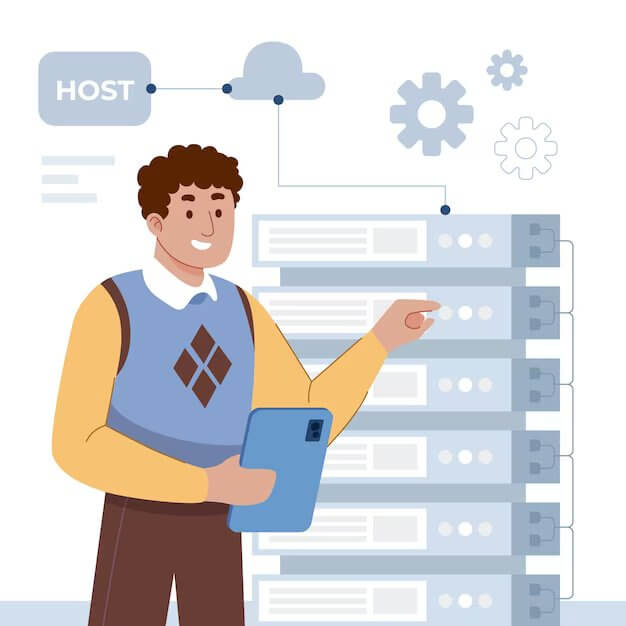
Now, let's examine the aspects that might make VPSServer a more appealing choice for certain users over Amazon Cloud VPS.
Global Reach and Performance
VPSServer's expansive network of data centers across various continents enhances its global reach, providing users the ability to deploy applications nearer to their audience, significantly reducing latency and improving load times. This global distribution is particularly beneficial in regions less covered by Amazon, offering potentially superior efficiency for localized applications. By optimizing efficiency and dedicating resources, VPSServer ensures high responsiveness and efficiency, which are essential for applications where speed and reliability are critical, setting it apart in areas where it directly competes with Amazon's vast but sometimes less specialized infrastructure.
Customization and Control
VPSServer excels in offering a high degree of customization and control. Users can choose from a wide array of operating systems and tailor their server configurations to meet specific requirements. This level of flexibility is invaluable for hosting applications that need particular settings or software environments, providing a distinct advantage over more rigid platforms. Such customizable options ensure that users can fine-tune their hosting environment to optimize efficiency, security, and compatibility with their applications, making VPSServer a preferred choice for those who require a more tailored hosting solution.
High-Performance Hardware
VPSServer's dedication to utilizing high-performance hardware, including state-of-the-art CPUs and SSDs in all its plans, markedly boosts both the efficiency and speed of applications. This strategy not only elevates the user experience through seamless and rapid application functionality but can also favorably affect search engine rankings. By employing the latest in technology, VPSServer underscores its commitment to providing premium service aimed at meeting the requirements of complex applications and users who value high efficiency and dependability in their hosting choices.
Cost-Effectiveness
VPSServer's straightforward pricing model presents a notable advantage in terms of cost-effectiveness for projects with stable resource demands. Unlike the variable costs associated with Amazon's pay-as-you-go model, which can escalate with increased traffic, VPSServer's fixed pricing ensures predictability and ease of financial planning. This model is especially beneficial for users who can forecast their resource needs, allowing them to optimize their budget without worrying about unexpected expenses due to traffic spikes.
Customer and Technical Support
VPSServer's commitment to customer and technical support is a standout feature. This service offers swift, informed assistance, which is invaluable for businesses and individual users who may need more extensive technical expertise themselves. With VPSServer, clients receive accessible, expert support, ensuring that any issues or questions can be addressed promptly and efficiently. This level of support significantly enhances user experience, providing peace of mind and allowing for more focus on core activities without worrying about potential technical challenges.
Managed and Unmanaged Options
Finally, VPSServer clearly differentiates between managed and unmanaged services, allowing users to select the level of support they need. While Amazon offers similar options, navigating the vast array of services and support levels can be more challenging, especially for newcomers to cloud hosting.
Amazon Cloud VPS Use Cases

Amazon Cloud VPS is highly versatile, catering to a broad range of applications from simple web hosting to complex, scalable web applications. It's particularly beneficial for
Launching Simple Web Applications
Amazon Cloud directory is an excellent platform for startups and developers aiming to launch and manage web applications swiftly. It strips away the complexity often associated with larger cloud environments, providing a straightforward, user-friendly interface. This simplicity enables quick deployment, allowing teams to focus on developing their applications rather than getting bogged down by infrastructure management. This service proves especially advantageous for projects in need of swift scalability, providing the capability to fine-tune resources instantly according to current demands. Such flexibility ensures both peak efficiency and economic resource utilization.
Creating Custom Websites
Amazon Cloud VPS offers a dependable and scalable hosting solution for custom websites catering to businesses and individuals. Its key benefits lie in dynamically adjusting resources such as CPU, RAM, and storage based on the website's needs, ensuring high efficiency and cost-effectiveness. This makes it a compelling choice for hosting custom websites that may experience fluctuating traffic or those needing rapid scalability without the hassle of managing complex infrastructure.
Building Small Business Applications
Amazon Cloud VPS is a robust platform for SMEs to host small business applications. It assures high reliability and scalability within a secure environment, which is particularly beneficial for applications critical to business operations. These applications require uninterrupted service and the ability to scale in response to growing user demands or operational needs. The secure environment also ensures that business data is protected against threats, making it an ideal choice for SMEs prioritizing security, performance, and flexibility.
Spinning up Test Environments
Amazon Cloud VPS's agility greatly benefits developers and QA teams by enabling test environments' rapid setup and teardown. This facilitates quicker testing and development cycles, allowing teams to iterate on feedback and improve efficiently. Creating isolated environments on demand helps test various scenarios and load capacities without affecting live environments, ensuring the final product is robust and ready for deployment.
How to Get Started Using Amazon Cloud VPS

Getting started with Amazon Cloud VPS involves a few straightforward steps:
Sign-Up Process
To access AWS service, individuals or organizations must create an account on the AWS platform. This process is designed to be straightforward, guiding users through the steps required to set up their account and start utilizing the Cloud VPS services.
Choosing the Right Plan
Selecting the appropriate Amazon Cloud VPS package necessitates a thorough analysis of your project’s specifications, such as CPU performance, memory capacity, storage needs, and bandwidth. This critical assessment guarantees that your chosen plan aligns with your immediate needs and provides the adaptability to adjust resource levels as your project progresses. This systematic planning is essential for enhancing efficiency and controlling expenses efficiently, playing a vital role in your project's sustained success.
Setting Up Your Environment
The AWS service facilitates setting up an environment on AWS for deploying virtual server instances. This user-friendly interface allows for the selection of various operating system templates and customizing settings to fit specific project requirements. By offering a range of configurations, AWS ensures that users can tailor their virtual environments to achieve optimal efficiency, security, and cost efficiency, streamlining the deployment process and enabling a smoother operational workflow.
Deploying Your First Application
After configuring your server, the next step is deploying your application. For straightforward deployments, this can be achieved through the AWS Management Console or via the AWS CLI for those requiring more detailed, custom configurations. This flexibility allows for a tailored deployment process that can meet the specific needs of your application, whether it's a simple web app or a complex, multi-tiered software solution.
Managing and Scaling Your VPS

Amazon Cloud VPS provides comprehensive tools and services that allow for efficient management and scalable adjustment of resources according to your application's needs. These include performance monitoring tools, alert setup options for proactive management, and straightforward resource scaling capabilities to ensure your application can adapt to changing demands without downtime or performance degradation.
This summary serves as a guide to using Amazon Cloud VPS's features, covering everything from the initial configuration to deploying and managing applications. Suitable for developers, small businesses, or larger corporations, Amazon Cloud VPS provides a powerful and scalable solution for hosting various applications.
Frequently Asked Questions
What is Amazon Cloud VPS?
Amazon Cloud VPS, integrated into Amazon Web Services, offers adaptable and scalable virtual private server hosting. Its worldwide infrastructure promises high availability and low latency for its users, balancing shared hosting's limited capabilities with the extensive resources of dedicated servers.
How do AWS Lightsail and EC2 differ?
AWS Lightsail is designed for simplicity and straightforward projects, offering an all-inclusive package, whereas EC2 caters to more complex needs with customizable, scalable options for high-demand applications.
What are the pricing models for Amazon Cloud VPS?
Amazon Cloud VPS adopts a flexible payment structure, where users have the freedom to adjust their resource use upward or downward and are billed based on their specific consumption. This method enhances adaptability, particularly in accommodating the ebb and flow of website traffic.
Why might VPSServer be considered a better option than Amazon Cloud VPS for some users?
VPSServer may appeal more due to its competitive pricing, excellent performance, and user-friendly approach, providing a viable alternative for those seeking predictable costs and tailored hosting solutions.
How can users get started with Amazon Cloud VPS?
Users begin by creating an AWS account, choosing the right plan based on their needs, setting up their environment via the AWS Management Console, deploying their application, and managing or scaling their VPS as needed.










